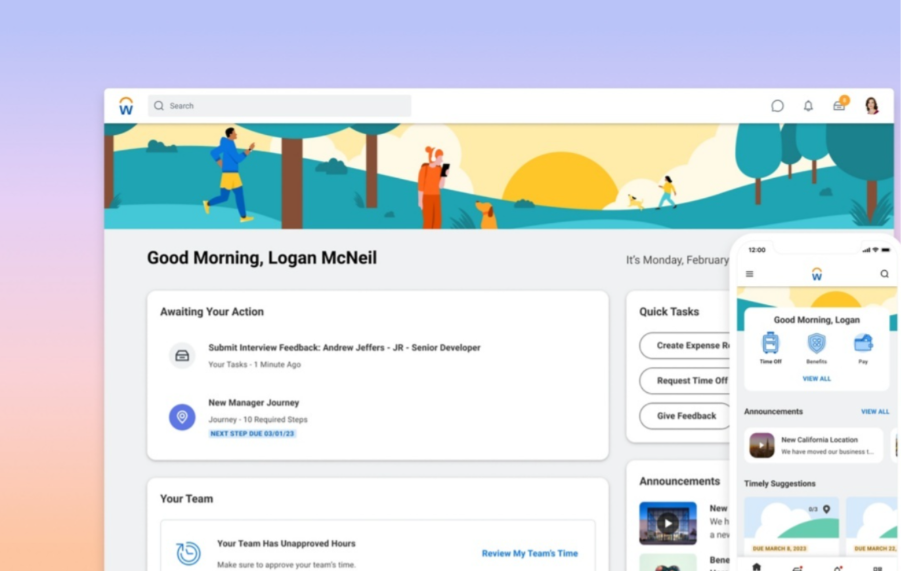Transforming HR, finance, and talent systems is no longer optional for modern enterprises. Many turn to Workday, a unified cloud platform that blends HCM, finance, payroll, talent, and analytics to eliminate silos, accelerate processes, and drive better decisions. Unlocking Workday’s strategic value requires highly specialized developers who can configure, integrate, and evolve the system in line with business goals.
Without seasoned Workday professionals, processes and organizations stall. Features like adaptive planning, real-time analytics, skills frameworks, and automation often remain underutilized. Custom workflows, cross-module integrations, and data migrations quickly become bottlenecks. The right developers transform the platform into a true growth engine by enabling faster rollouts, tighter controls, and ongoing innovation.
Hiring developers for Workday is difficult. The role requires more than deep technical mastery of the Workday ecosystem. It also demands a strong understanding of business flows, financial logic, talent strategies, and compliance requirements. The talent pool is limited, competition is high, and retention remains a challenge.

Key skills to look for in a Workday specialist
Workday spans several critical domains, including HCM, Financials, Payroll, Planning, and Integrations. To deliver results, a Workday specialist must combine deep technical capabilities with strong business process understanding. The following skills are essential:
- Workday Studio and Integration Expertise: Workday integrations are complex and require hands-on experience with Workday Studio, Enterprise Interfaces, Core Connectors, BIRT reports, and Workday Web Services APIs (SOAP/REST). A strong specialist should understand integration middleware, data transformation, error handling, and message orchestration. These skills are key in connecting Workday with ERPs, payroll systems, benefits platforms, and other external tools.
- Configuration and Business Object Model (BOM): Unlike traditional software development, Workday relies heavily on configuration. Specialists must be fluent in configuring calculation definitions, condition rules, domain security, and business processes. A deep understanding of the Business Object Model, role-based permissions, and module dependencies is essential to ensure smooth operations across the platform.
- Report Design and Analytics: Reporting is central to how organizations use Workday. Specialists should be proficient in Workday Report Writer, BIRT, calculated fields, aggregate reporting, and composite report building. They must be able to convert transactional data into clear, actionable insights for decision-makers across HR, finance, and leadership.
- Domain and Process Knowledge: Workday specialists must understand how core business functions operate in practice. This includes processes like hire-to-retire, compensation cycles, cost allocation, accounting treatment, budgeting, and regulatory reporting. Domain insight ensures that technical solutions align with business goals and compliance requirements.
- Cloud, DevOps, and Automation Experience: Since Workday operates as SaaS, specialists should have experience with cloud-based development and deployment practices. This includes working with version control, CI/CD pipelines, infrastructure-as-code, serverless platforms, and containerization. Automation across development, testing, and release cycles improves reliability and performance.
- Skills-First and Future-Oriented Thinking: Workday continues to evolve with a focus on skills intelligence through its Skills Cloud. Specialists who can map competencies, build skills-based workflows, and integrate learning tools will be better equipped to support future workforce strategies.

Challenges in hiring Workday specialists
Hiring Workday developers is increasingly difficult, as the role requires a rare combination of technical depth and domain fluency. Specialists must understand not only the mechanics of Workday, but also how HR, finance, payroll, and planning processes operate in real business environments. Mastery in one area, such as HCM, does not guarantee capability in others, like Financials or Integrations. Yet many organizations seek this broad expertise, which shrinks the available talent pool and lengthens hiring timelines.
Demand continues to rise, while qualified candidates remain scarce. Workday’s rapid evolution requires specialists to continuously upskill, and those who don’t quickly fall behind. High compensation expectations, frequent job changes, and burnout are common. Even with strong technical skills, cultural fit and a delivery-focused mindset are essential. Workday projects involve collaboration across teams, change management, and business alignment, making adaptability and communication just as important as platform knowledge.
Strategies for hiring Workday specialists
Hiring the right Workday specialist requires a focused approach that combines targeted sourcing, skill-based evaluation, and long-term talent planning. Generic job boards rarely attract the caliber of talent needed to deliver impact. Instead, teams should prioritize platforms like the Workday Partner Network, LinkedIn, and user groups, focusing on certified specialists with real-world experience across modules such as HCM, Financials, and Planning.
Evaluations should mirror actual Workday tasks, including workflow configuration or calculated field creation, and be followed by scenario-based interviews that test practical judgment. When local hiring slows down, nearshore or offshore specialists accessed through trusted staffing partners can help fill gaps efficiently.
Internal referrals and upskilling should not be overlooked. HR and finance teams often include power users who can grow into specialist roles with the right training. To retain top talent, emphasize growth opportunities, exposure to new modules, and involvement in transformation work, since purpose and progression often outweigh pay alone.
Work with a Workday Staffing Partner
Partnering with a Workday staffing provider like Procom gives organizations fast, flexible access to certified specialists without the burden of full-time hiring. As a leader in enterprise technology staffing, Procom connects companies with experienced Workday professionals who bring hands-on expertise across modules such as HCM, Financials, Payroll, and Planning.
Outsourcing through Procom helps accelerate time-to-hire, manage costs effectively, and reduce delivery risk. This is especially valuable for organizations working through major implementations, complex integrations, or ongoing platform enhancements. Whether you’re migrating to Workday, expanding functionality, or strengthening reporting and analytics, Procom delivers talent solutions that match your business needs.
This model works well for project-based initiatives, seasonal demands, or filling critical gaps during large-scale transformation. With access to a vetted network of Workday specialists, companies can stay agile and maintain high system performance without overloading internal teams. Procom enables you to focus on outcomes while ensuring talent challenges don’t slow progress.





